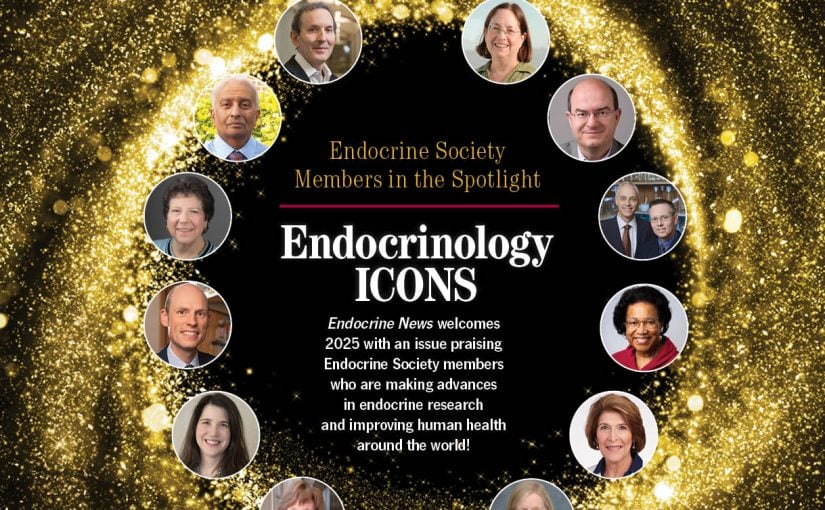This month’s cover story approaches the topical subject of endocrine-disrupting chemicals (EDCs) from an entirely different perspective — their effects on children (p. 14). Writer Aalok Mehta has done an outstanding job in bringing this controversial, and even confusing, topic to light. One of the problems in discussing EDCs and children is the fact that nobody is completely sure exactly how many of these hormone- damaging substances are out there. For example, even though there are more than 80,000 chemicals registered with the EPA, one researcher says that only “scratches the surface” regarding the number of chemicals that could have endocrine-disrupting effects.
In “Boning Up on Osteoporosis” (p. 20), writer Eric Seaborg makes a compelling case for why endocrinologists should play a bigger role in this complex condition. According to Society member Nelson Watts, MD, director of Mercy Health Osteoporosis and Bone Health Services in Cincinnati, almost any endocrine disorder you can think of has some effects on bone, from Cushing’s disease and diabetes to hyperparathyroidism and hypogonadism. “It’s hard to think of an endocrine disease that doesn’t in some way have some eff ect on calcium,” he says in the article.
In deciding whether a diabetes patient should use a pen or a syringe to administer insulin, many factors must be considered. Terri D’Arrigo weighs the pluses and minuses of both methods in “Grudge Match: Pens vs. Syringes” (p. 24). While many factors must be considered — from the types and amounts of insulin administered to the patient’s dexterity and ability — cost needs to be considered, according to Linda Siminerio, RN, PhD, CDE, at the University of Pittsburgh Diabetes Institute. “Comparing pens to syringes is not as simple as saying one is better than the other,” she says. “Expense can be problematic for pens.”
Associate editor Derek Bagley tackles the stress-inducing topic of how to deal with your professional rivals in the practice realm in “Competitive Advantage” (p. 30). Elliot Levy, MD, a clinical professor of medicine in the Division of Endocrinology at the University of Miami (Florida) School of Medicine says that the best way to deal with competition is to be the best physician you can be, adding that you should “just be better and smarter than they are.”
On a personal note, the Society is fully moved into its new offices in the heart of Washington, D.C. Not only is this location more comfortable and convenient, it’s a home that the Endocrine Society membership can be proud of. I implore you to drop in the next time you’re in the nation’s capital. Until then, feel free to drop me a line at [email protected].
Mark A. Newman
Managing Editor, Endocrine News

